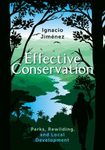Biography / Memoir Nature Writing
By: David M Wilkinson(Author)
286 pages, 16 plates with colour photos and 2 colour maps; b/w photos, tables
This biography reveals the man and the campaign behind the establishments of Britain's National Parks.
![Fight for It Now Fight for It Now]()
Click to have a closer look
About this book
Customer reviews
Biography
Related titles
About this book
National Parks are Britain's breathing spaces – protected areas enjoyed by the millions of visitors attracted every year by their tranquillity, beauty and landscape. Fifteen National Parks cover a significant share of Britain's total land area – 10 per cent of England, 20 per cent of Wales, and 7 per cent of Scotland. Yet despite their importance, few people today are aware of the campaign in the 1930s and 1940s to establish National Parks. And fewer still know the name of the man who was its principal driving force.
John Dower was an architect, a planner, a prodigious walker, an accomplished writer and, above all, a fighter. Fight for It Now is the first biography to be written about him, and the title reflects his one great objective and the increasing urgency of attaining it as his health declined. Drawing on extensive national archives and his private papers and letters, Fight for It Now describes Dower's early work with pressure groups like the Friends of the Lake District and the Council for the Protection of Rural England, and then his subsequent move during the Second World War to an influential position inside government, focusing on post-war reconstruction. While German bombs were falling on British cities, it was part of Dower's job to quarter the English countryside and identify potential areas for National Parks.
Dower's most influential contribution was his 'one-man White Paper' National Parks in England and Wales published at the end of the war in 1945. The 'Dower Report' addressed key questions on the criteria for selecting National Parks, where they should be located, who they were for, and how they should be administered, and it paved the way at last for the 1949 National Parks and Access to the Countryside Act. While overcoming opponents both outside and inside government, Dower wrote continuously as though his project could only be hammered out at white heat. And all the while, the one struggle he knew he could not win was the tuberculosis that eventually killed him, at the tragically early age of forty-seven.
Customer Reviews
Biography
For most of his working life, David Wilkinson has researched and lectured on British and European environmental policy and politics – within higher education, an environmental think-tank, and the UK's wildlife and countryside agency, Natural England. Fight for it Now is the second of his biographies of pioneer environmental campaigners, and follows a portrait of writer and broadcaster Kenneth Allsop (Keeping the Barbarians at Bay, Signal Books 2013).
Biography / Memoir Nature Writing
By: David M Wilkinson(Author)
286 pages, 16 plates with colour photos and 2 colour maps; b/w photos, tables
This biography reveals the man and the campaign behind the establishments of Britain's National Parks.
"John Gordon Dower is almost forgotten today. He should be one of the great heroes of landscape conservation because he, more than anybody, was the founder of our National Parks. [...] Wilkinson uses contemporary documents and letters to present a blow-by-blow account of the tortuous process that led to the Hobhouse Committee and the Parks. In the later stages the story becomes oddly gripping and even rather moving. The book has too many clichés: ‘a tall order’, ‘jewel in the crown’, ‘pull no punches’. The approach is microscopic rather than telescopic. All the same, this is a story that needed telling, and is a welcome reminder that, even in the civil service, a strongly motivated individual can sometimes create something lasting and a force for the good. David Wilkinson has done justice to a forgotten hero."
– Peter Marren, British Wildlife 31(4), April 2020
"At last a book about the father of the British National Parks movement – John Dower, whose extraordinary legacy can now be understood. It shouldn‘t have been so hard to get this great idea off the ground, but it was, and this book brings to life the battles of this visionary man, holding tight to the promise of National Parks even as his own life was failing. Moving and powerful, this is a story that needed to be told: thank goodness it now has been."
– Dame Fiona Reynolds, former Director-General of the National Trust and Chair of the Green Alliance
"This is a painstakingly researched biography of a forgotten hero. David Wilkinson has pieced together the story of John Dower, the man behind our National Parks, and the long, labyrinthine journey between their conception and the realisation (which Dower did not live to see). It is also a story of a struggle against time: a moving tribute to a sick man determined to save our best landscapes from inappropriate development. and give something back to those who strived and fought in the Second World War."
– Peter Marren, naturalist, journalist and author























